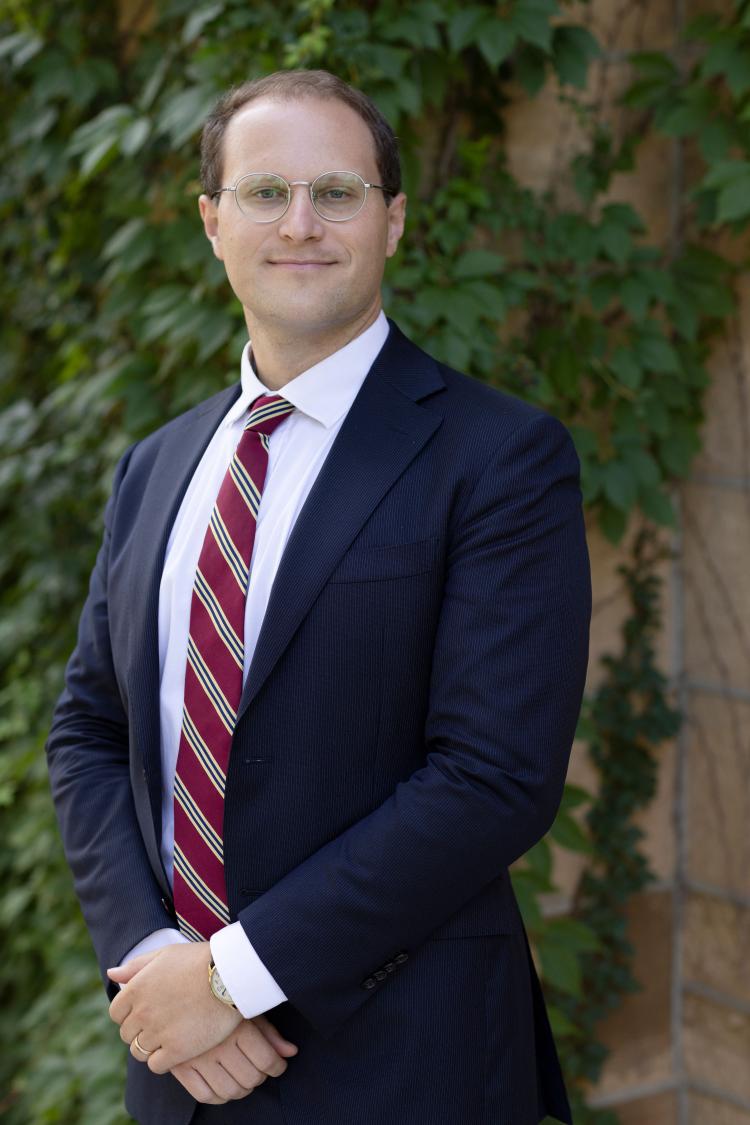Getting to Know Professor Adam Sopko
In August, Professor Adam Sopko will join the Colorado Law Faculty as Associate Professor.
Adam currently serves as a Staff Attorney with the State Democracy Research Initiative at the University of Wisconsin Law School. He joined the Initiative following a clerkship with Chief Justice Stuart J. Rabner on the New Jersey Supreme Court. Sopko graduated from Northwestern Pritzker School of Law, where he served as Editor-in-Chief of the Northwestern University Law Review.
In this interview, Adam shares more about his work, the inspiration behind it, and some of her career accomplishments so far.

What excites you most about life in Colorado?
AS: What's the word limit on these responses?! I grew up in a rural town in the mountains of northeastern Pennsylvania but have spent most of my post-grad life in cities, so I'm thrilled to be so close to mountains and streams again. My family and I love to be outside as much as possible and so we are looking forward to being a part of Boulder's close-knit community where folks are always looking for a reason to get up from the computer and go for a trail run or bike ride!
Can you share a bit about any current projects you are working on?
AS: My work is focused on understanding how state institutions—governors, courts, legislatures, etc.—shape public policy. Recently, I've been writing about state supreme courts—their powers, limits, and so on—and how they participate in governance. I'm just wrapping up a paper that studies how high courts have used their administrative power—the same power they use to set policies about courtroom closures due to weather or policies about wearing a mask during a pandemic—to expand individual rights and remedies.
Longer term, I'm working on a paper that builds on this same project but studies how state supreme courts make and shape public policy outside of adjudication. We typically think of courts and judicial power as limited to resolving legal disputes—without a lawsuit before them, they can't act—but high courts in several states have addressed important issues from criminal justice to wealth inequality without a party ever filing a brief or complaint. This project will take a deep dive on this aspect of state judicial practice and its implications on state distribution of powers.
This summer I'm working on a project focused on state judicial independence by studying relations between state judiciaries and legislatures. Across the country, state legislatures are attempting to entrench policy preferences by reshaping the structure of the judiciary—like, creating special courts to hear important cases and choosing the judges who decide them. This project will shine a light on this phenomenon and explore its implications for democratic norms and judicial autonomy.
How does your experience with the State Democracy Research Initiative inform your approach as a legal scholar and teacher?
AS: I split my time at SDRI between scholarly research and advocacy—filing briefs in state supreme courts where we thought our research on state constitutional law was helpful and advising members of state government on thorny questions of state public law. That experience has provided a helpful perspective on the role state and local institutions play in our legal system. As a scholar, it helped shape my research agenda by helping me locate where my interests overlap with the gaps in our understanding of how these institutions work. As a teacher, my experience will hopefully help students recognize that beyond the federal system, state and local institutions provide potent, but perhaps overlooked, pathways for them to advance the interests of the clients and causes they'll be representing after leaving the classroom.
What drew you to pursuing a legal career?
AS: Before law school, I worked at a consulting firm that often advised clients who were in the midst of litigation, which meant I often worked alongside lawyers. Without any lawyers in my family, this gave me a better appreciation for the role attorneys and courts can play in making society better (or worse!). The attorneys I was often working alongside helped me see that what I liked about the job was its overlap with the law. After a few years of letting those hints and suggestions percolate, I made the jump to law school.
What is your proudest career accomplishment so far
AS: I was deeply proud to serve as a law clerk to Chief Justice Stuart Rabner on the New Jersey Supreme Court. Clerkships are a terrific experience, especially for recent graduates, as you are typically exposed to a wide variety of areas of the law and gain invaluable mentorship, and my experience was no exception. I learned so much assisting the Chief Justice throughout the Term as he grappled with difficult cases touching on tort law, criminal sentencing, corporate law, voting rights, and more. It was also invaluable as a recent graduate to work for and learn from someone who is committed to integrity and the rule of law on a molecular level. My experience was especially humbling since, as the highest court in the state, the New Jersey Supreme Court has the final say on nearly all the legal issues that it resolves.
Professor Sopko will be presenting a talk titled “The Power of State Constitutions” at Mini Law School on September 3. Register for this fall’s Mini Law School session here: https://www.colorado.edu/law/academics/mini-law-school


